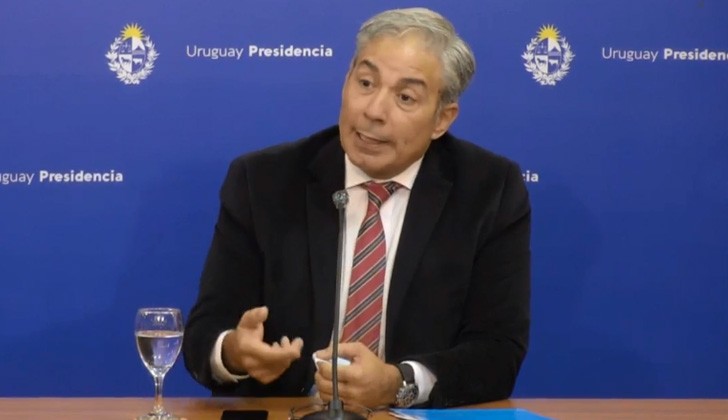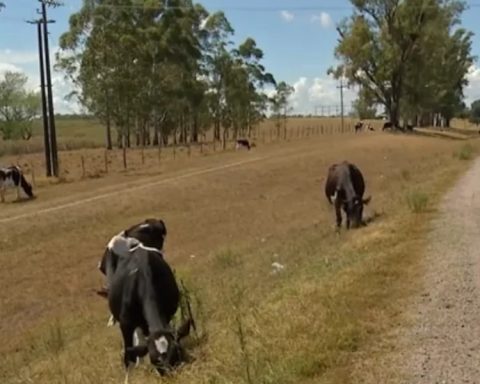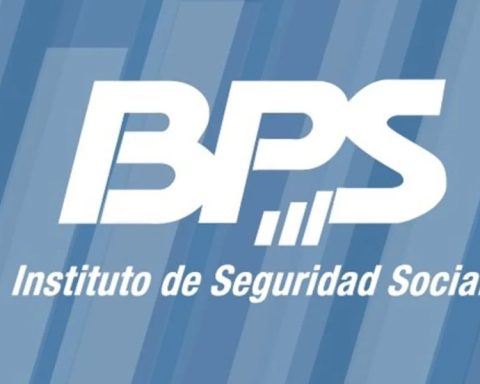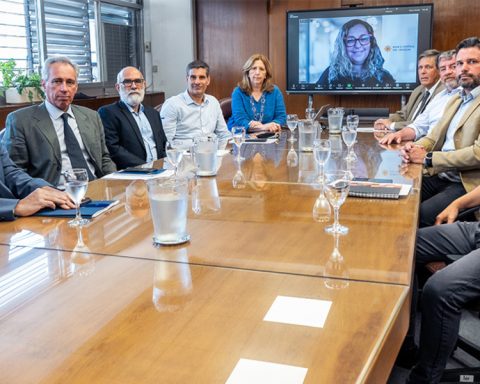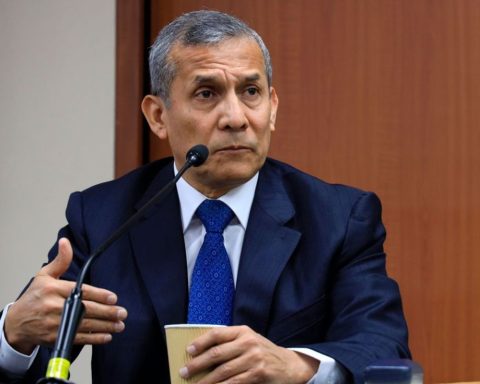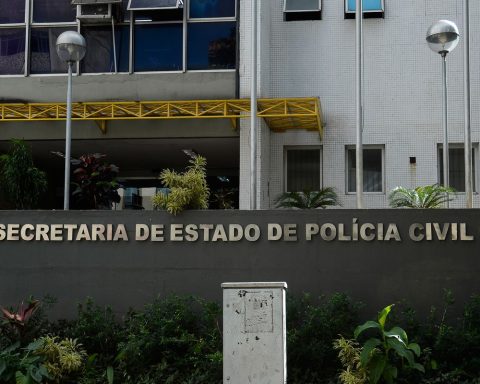
This Thursday, June 30, the government submitted the draft Accountability Law, which establishes that of the 225 million dollars increased in social spending, destined for: education, security, development of science and technology and increases wages of public employees.
In this sense, ANEP requested “extraordinary” resources to continue deepening the educational transformation.
During the presentation of the four volumes of around 800 pages in which the ANEP reports on its 2021 management, the president of the Central Board of Directors, Robert Silva, made an extraordinary request for resources to continue advancing in the educational transformation.
“We have a very important budget in general in educational matters that we have to continue advancing in using it better and better, and additionally we have requested extraordinary resources to add to those that we have already allocated to educational transformation, in the environment of 49 million dollars, that are added to what has been the pre-agreement signed in the Ministry of Labor regarding the salary recovery of teaching officials,” he said.
Silva added: We have a very good commitment to education, there are additional resources for Plan Ceibal and for the Ministry of Education and Culture, and I believe that science and technology together do something important to continue advancing”.
educational transformation
ANEP’s Rendering of Accounts for the year 2021 has as its central axis specifying actions that allow progress in the educational transformation that has been established in the “Educational Development Plan 2020-2024”.
In this framework, the ANEP requests extraordinary resources “to continue with the process started last year.”
It requests new economic resources for: “Strengthening and development of the teaching function” in which competitions for grade promotions of Secondary and UTU teachers are included, as it will be done by Primary education. It is assured that it is a non-existent tool that will allow teachers to develop their professional careers beyond promotion exclusively based on seniority.
The new proposal “does not modify the current system and teachers can choose one or the other.” In turn, the ANEP will approve a general calendar of teaching competitions that will allow for effectiveness in teaching positions and hours, since there are educational subsystems in which there has been no competition to obtain effectiveness in subjects for 8 years.
It will also allow the “strengthening of the management teams of educational centers, as well as inspections”, is indicated in the ANEP document.
Educational centers are understood as substantive structures for change and directors have a strategic role based on the pedagogical leadership that their function implies, having a direct impact on the generation of a learning community. In turn, the management and inspection teams have been “affected” in salary matters, so it is important to attend to their situation, while considering the performance of complementary tasks in contexts of vulnerability, also recognizing the training they hold , is indicated in the document.
It is indicated that what is required will also allow “salary improvement, differential payment for work in contexts of vulnerability and recognition of training are keys to educational transformation.”
The new resources requested will also be directed to “new research instances for ANEP teachers.” Training in education advances in its consolidation as a university institution, being of fundamental importance “the production of knowledge linked to the teaching and learning processes, integrating teaching, research, extension and internationalization”.
ANEP assures that in 2023 “the application of the curricular transformation will begin in the initial training of teachers, which constitutes part of a process towards university recognition of the same within the framework of Law No. 19,889 (LUC) ” .
Other aspects that are mentioned in the document and that will allow the extra-budgetary increase is the “comprehensive curricular transformation”. The improvement of student learning and the reduction of the high internal inequity of the educational system is a need recognized by all. “The curricular transformation is constituted, together with other educational policies, as a key factor for the expected change in educational matters. It is in the process of being implemented and seeks to offer students and society a proposal centered on students and relevant in accordance with the characteristics of 21st century society”.
For this, it is necessary to work on the “National Curricular Framework, which includes the general competencies and the graduation profile of compulsory education, the learning progressions and the plans and programs corresponding to the different educational levels (Initial, Primary, Secondary, Technical Professional).
“The transformation is oriented from inclusion, relevance, flexibility, integration, participation as guiding principles of the new policy, which are carried out in an integrated and articulated manner, among which a change in management stands out. of educational centers focused on the construction of true professional and learning communities, with the use of tools such as strategic planning, management of pertinent information in real time; a professional development policy for all teachers that also includes the training of the country’s management and supervision teams at the different educational levels”, is expressed in the document.
Likewise, work is being done on changes in the “statutory system, which take into account training and performance in a more significant way than mere seniority; and the concretion of a training proposal for education professionals, of a university nature, as corresponds to the task they carry out”.
Another aspect mentioned in the ANEP proposal is the “Equity Policies”.
In this sense, the “creation of up to 60 full-time secondary and UTU – María Espínola Educational Centers” is proposed. The María Espínola Centers (CME) were created in Basic Secondary Education with the aim of “improving learning, the journey and the graduation of students in situations of educational and social vulnerability”. This modality contributes to strengthening the leadership of the management teams and structuring their management based on center projects. “For this purpose, new positions of coordinators of learning areas were created to enhance the technical-teaching aspects and management facilitators so that, in dialogue with the inspection bodies, they accompany the communities in the implementation of their center project and plans. of improvement”.
“Three-year in-service training processes began, with the aim of developing the professional skills of the management team for the implementation of project-based learning, interdisciplinary work and co-teaching by teachers, among others”, detailed in the ANEP document.
“This educational initiative with an extension of the pedagogical time entails a proposal for workshops focused on the interests of the students and includes the respective food service (three meals a day)”, he assures.
The costs associated with the operation of “10 new centers and 21 transformations: 10 for the year 2023, six for the year 2024 and five for the year 2025” are incorporated in the requested resources.
In the current year, 29 centers are operating under this modality: “12 educational centers began the process in 2021, and another 17 centers of the General Directorate of Secondary Education (DGES) and General Directorate of Secondary Education joined the offer in 2022. Professional Technical Education (DGETP)”.
Likewise, it is ensured that the requested resources would allow “to continue expanding and deepening this educational proposal and extend the offer to 60 María Espínola centers by the end of this administration.”
The budgetary resources corresponding to food services, “are not part of this request.” Its financing will be charged to the Primary Education Tax, within the framework of the provisions of art. 272 of Law No. 19,996, and these must be attended by the General Directorate of Initial and Primary Education when preparing the execution plans of the aforementioned tax.
The extension of pedagogical time in primary education schools of quintiles 1 and 2, reaching 40% of school-age children, is another of the aspects that are pointed out. The objective is “to extend the time of the activities by providing better and greater support to primary school children who are in a context of greater vulnerability.”
The goal set by ANEP, within the framework of the Educational Development Plan 2020-2024, is that at the end of the administration “40% of children in schools from 1st to 6th grade, are integrated into offers of extension of pedagogical time in urban schools categorized in quintiles 1 and 2”.
The resources requested will be used “to finance a proposal, which is understood to be a favorable instrument for improving equity and learning in the most vulnerable sectors, based on a strategy, among others, that allows alliances with various entities , generate spaces for children to stay in activities beyond the existing schedule to date, which does not exceed four hours a day”.
Another of the aspects referred to in the document is the “salary recovery of teachers and civil servants and attention to existing inequities in terms of teacher remuneration.”
The ANEP has signed a pre-agreement in the Ministry of Labor, together with the Ministry of Economy and Finance, with the Coordinator of Teaching Unions that allows officials “to have a salary recovery of 5.7%, allocating additional resources to continue advancing in the attention of salary inequities of Full-Time teachers, Agrarian Teachers, Assigned and Laboratory Assistants, among others, which will be implemented through the mechanisms established in the Collective Bargaining Law.
It is an “important investment to address the situation generated with education workers, which ANEP values very positively and constitutes an achievement to be highlighted.”
ANEP has also requested additional resources to meet management needs, such as the “hourly extension of educational center assistants, in particular those who work in school canteens, as well as for the generation of new educational offers in new works enabled in the different educational levels”.
The agency highlights that an “agreement” was reached with the Ministry of Economy and Finance by which it will reinforce ANEP’s resources, outside of the resources granted in the Rendering of Accounts, through an extraordinary item of 22 million dollars for investments in professional technical education (UTU) equipment, whether for new buildings or the renovation of technological infrastructure that has remained unchanged for several decades. The additional resources will also make it possible to meet maintenance, cleaning and security needs based on the development of contracting mechanisms established for this purpose by ANEP.
